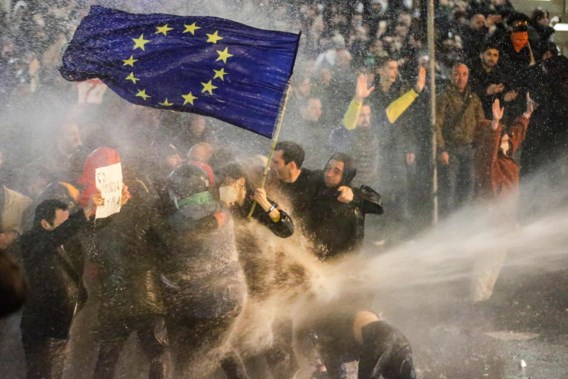Thousands of people took to the streets of the Georgian capital, Tbilisi, on Tuesday night to protest a controversial bill on “foreign agents”. Opponents fear that the main aim of the law is to intimidate the media and NGOs. The statements also met in the parliament building in the capital, Tbilisi.
According to the Georgian Interior Ministry, police arrested at least 66 people and nearly 50 officers were injured at the protest. The police dispersed the demonstrators with tear gas and water cannons. There were “violent incidents” in which demonstrators threw rocks and Molotov cocktails at the police. According to the ministry, civilians were also injured, but no figures were provided.
Officially, the bill aims to make the money flowing from abroad public. Organizations that are funded by more than twenty percent from abroad must register as “foreign agents,” or else they risk paying heavy fines. But the measure appears to mainly target the media, NGOs and other organizations that dare to express themselves critically about government policy. Critical voices often draw on foreign resources.
A similar law in Russia has been criticized internationally as a politically motivated measure to stigmatize and silence Kremlin opponents. Many independent media and NGOs have been referred to as “foreign agents”. Particularly since the invasion of Ukraine over a year ago, Russia has taken intense action against dissidents in its country.
Civil rights activists also fear that the law will affect Georgia’s chances of membership in the European Union. Despite strong protests, the motion was approved in a first reading by a majority of Georgia lawmakers on Tuesday.
In June last year, Georgians also took to the streets in droves because the European Commission issued advice to delay Tbilisi’s application for EU membership.

“Creator. Award-winning problem solver. Music evangelist. Incurable introvert.”







More Stories
British military spy satellite launched – Business AM
Alarming decline in the Caspian Sea
Lithuania begins construction of military base for German forces